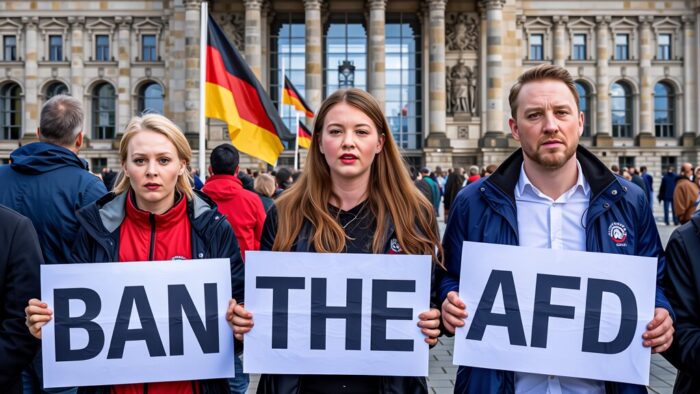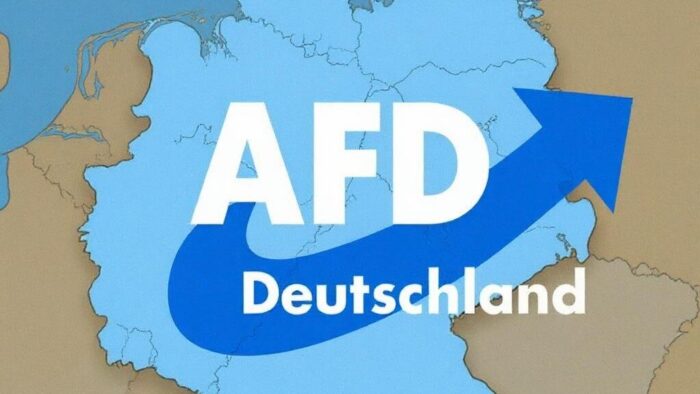The Local is reporting that Germany’s far-right AfD (Alternative for Germany) party has seen a notable increase in popularity, leading to concerns that the strategies employed by the ruling conservative parties may inadvertently be empowering rather than diminishing its influence. Despite attempts to crack down on immigration and improve the economy, recent polls suggest the conservatives are losing voter support, while the AfD gains ground. The article begins:
Conservative leaders at the helm of the German government suggest they can cut down the far right’s influence by cracking down on immigration and improving the economy. But polls show they are loosing voters’ support while the AfD gains. The slow but steady increase in popularity of the far-right Alternative for Germany (AfD) party has been a theme in German politics this year. In a turn of events that many readers of The Local called “terrifying” or “worrying”, the anti-immigration party won its largest share of votes ever in the national election in February, which was notably the biggest success by a far-right party in a German federal election since the end of the Second World War. Since then, the AfD has seen its support steadily increase.
Read more: https://www.thelocal.de/20250723/how-germanys-leaders-are-empowering-the-far-right [Paywall]
Key Points
- The far-right AfD achieved its largest share of votes ever in the February national election, marking its most significant success since World War II.
- Recent polls indicate the AfD’s support has climbed to approximately 25 percent, now tying with or closely trailing the governing conservative Union parties (CDU/CSU).
- Chancellor Friedrich Merz and other conservative leaders have shifted further to the right, arguing for the democratic defeat of the AfD rather than a ban, which critics suggest normalizes the AfD’s platform.
- Examples of conservatives seemingly empowering the far-right include criticizing protests against AfD leader Alice Weidel and downplaying an intelligence report confirming the AfD as “extremist.”
- Analysts like Johannes Hillje and Benjamin Höhne express skepticism that current conservative strategies will be enough to undermine the AfD, warning that a shift might be “too little too late.”
German AfD Strengthens Global National Conservative Ties
The German Alternative for Germany (Alternative für Deutschland, AfD) has solidified its position within a burgeoning Global National Conservative Alliance through strategic ideological alignments and operational collaborations with entities like Hungary’s Fidesz and various European far-right groups, fostering a network that challenges EU integration and promotes anti-immigration stances amid rising calls for prohibition. This connectivity extends to shared platforms at international events, where AfD representatives engage with counterparts to amplify nationalist narratives, as seen in their expanding influence outside traditional areas.
Meanwhile, intelligence assessments highlight the escalation of radical elements that deepen ties to broader conservative movements. Furthermore, the party’s involvement in cross-border alliances, such as those forming under Orbán’s leadership, underscores operational linkages that include disinformation coordination and policy convergence, evident in surveillance warnings about radical increases and diplomatic frictions over extremism classifications.
External References:
-
Far-right AfD could join Patriots for Europe after German elections
-
New far-right group led by Germany’s AfD founded in European Parliament
Disclaimer
The Global Influence Operations Report (GIOR) employs AI throughout the posting process, including generating summaries of news items, the introduction, key points, and often the “context” section. We recommend verifying all information before use. Additionally, images are AI-generated and intended solely for illustrative purposes. While they represent the events or individuals discussed, they should not be interpreted as real-world photography.











